Fleurs du Mal Magazine


Als voormalig journalist/vertaler Daan Roos een date zoekt op internet, komt hij in de echte wereld Sylvia tegen en is meteen verkocht.
 Hij ligt in scheiding met de wispelturige Chantal die haar positie als moeder van twee misbruikt in de echtscheidingszaak. Afwisselend woont hij in een camper en bij Sylvia die aan een progressieve variant van MS lijdt wat haar grilligheid versterkt.
Hij ligt in scheiding met de wispelturige Chantal die haar positie als moeder van twee misbruikt in de echtscheidingszaak. Afwisselend woont hij in een camper en bij Sylvia die aan een progressieve variant van MS lijdt wat haar grilligheid versterkt.
Langzaam raakt hij verstrikt in het oerwoud van hulpverlening en regelgeving waar psychiater, psycholoog, jeugdbegeleiders, rechter, advocaten, opsporingsambtenaren, ziektewet, bijstand, sociale recherche, voedselbank en daklozenopvang hem eerder tegenwerken dan meewerken. De goedbedoelde acties van zijn voormalig werkgever Freek, de bijna bejaarde buurman Mook of Sascha, de schizofrene ex van Sylvia, helpen Daan ook niet echt.
De auteur schept er een genoegen in personages en verwikkelingen met uitbundig creatieve maar passende metaforen aan het papier toe te vertrouwen met beelden die meer oproepen dan de woorden zelf. Monddood is een rauwe en ontroerende roman, waarin de troosteloze absurditeit van het leven besloten ligt en haast schrijnend dichtbij komt in de fysieke en geestelijke aftakeling van het leven.
Monddood
Auteur: Niels Landstra
Roman
Taal: Nederlands
Uitgeverij U2Pi
1 december 2022
Paperback
229 pagina’s
EAN 9789493299429
19,50 euro
• fleursdumal.nl magazine
More in: - Book News, - Bookstores, Archive K-L, Archive K-L, Landstra, Niels, Niels Landstra
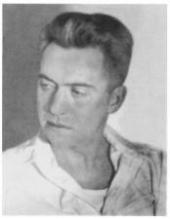
Grand Cayman
This tuft that thrives on saline nothingness,
Inverted octopus with heavenward arms
Thrust parching from a palm-bole hard by the cove⎯
A bird almost⎯of almost bird alarms,
Is pulmonary to the wind that jars
Its tentacles, horrific in their lurch.
The lizard’s throat, held bloated for a fly,
Balloons but warily from this throbbing perch.
The needles and hack-saws of cactus bleed
A milk of earth when stricken off the stalk;
But this,⎯defenseless, thornless, sheds no blood,
Almost no shadow⎯but the air’s thin talk.
Angelic Dynamo! Ventriloquist of the Blue!
While beachward creeps the shark-swept Spanish Main
By what conjunctions do the winds appoint
Its apotheosis, at last⎯the hurricane!
Hart Crane
(1889 – 1932)
Grand Cayman
• fleursdumal.nl magazine
More in: Archive C-D, Archive C-D, Crane, Hart
Cric.
Zittend in het open raam staart ze naar hem. Geen kushandje, geen laatste schreeuw. Ze ziet hem niet meer. Hij is herinnering. En de volgende dag is ook zij verdwenen.
 Met zijn poëziedebuut brengt Hans Depelchin een ode aan de liefde, die aanzwelt, piekt en weer kantelt. Zijn gedichten trekken, duwen, naderen en vervagen, doen de lezer wankelen en naar adem happen.
Met zijn poëziedebuut brengt Hans Depelchin een ode aan de liefde, die aanzwelt, piekt en weer kantelt. Zijn gedichten trekken, duwen, naderen en vervagen, doen de lezer wankelen en naar adem happen.
Spanriem is een bundel over taal en intimiteit, in een klimaat dat nu eens het vuur aanwakkert en zich dan weer in ijskristallen op de wimpers afzet. Een steeds extremer branden, vriezen, ontdooien.
Crac.
Hans Depelchin (Oostende, 1991) is schrijver, dichter en performer. Hij studeerde vergelijkende moderne letterkunde aan de UGent en drama (woordkunst) aan het Conservatorium in Antwerpen. Weekdier, zijn romandebuut, werd jubelend ontvangen. Zijn poëzie is eerder verschenen in De Revisor, Kluger Hans, Deus Ex Machina, Het Liegend Konijn en DW B.
Spanriem (Poëzie)
Auteur: Hans Depelchin
Uitgeverij: De Geus
Publicatiedatum: 08-06-2022
Paperback
88 pagina’s
Druk 1e
Taal: Nederlands
Formaat 20,9 cm x 16 cm x 0,8 cm
ISBN: 9789044546941
NUR: 306
Prijs: € 21,99
• fleursdumal.nl magazine
More in: #Editors Choice Archiv, - Book News, Archive C-D, Archive C-D
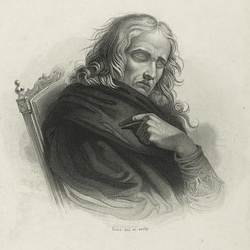
Blind Old Milton
Place me once more, my daughter, where the sun
May shine upon my old and time-worn head,
For the last time, perchance. My race is run;
And soon amidst the ever-silent dead
I must repose, it may be, half forgot.
Yes! I have broke the hard and bitter bread
For many a year, and with those who trembled not
To buckle on their armor for the fight,
And set themselves against the tyrant’s lot;
And I have never bowed me to his might,
Nor knelt before him — for I bear within
My heart the sternest consciousness of right,
And that perpetual hate of gilded sin
Which made me what I am; and though the stain
Of poverty be on me, yet I win
More honor by it, than the blinded train
Who hug their willing servitude, and bow
Unto the weakest and the most profane.
Therefore, with unencumbered soul I go
Before the footstool of my Maker, where
I hope to stand as undebased as now!
Child! is the sun abroad? I feel my hair
Borne up and wafted by the gentle wind,
I feel the odors that perfume the air,
And hear the rustling of the leaves behind.
Within my heart I picture them, and then
I almost can forget that I am blind,
And old, and hated by my fellow-men.
Yet would I fain once more behold the grace
Of nature ere I die, and gaze again
Upon her living and rejoicing face —
Fain would I see thy countenance, my child,
My comforter! I feel thy dear embrace —
I hear thy voice, so musical and mild,
The patient sole interpreter, by whom
So many years of sadness are beguiled;
For it hath made my small and scanty room
Peopled with glowing visions of the past.
But I will calmly bend me to my doom,
And wait the hour which is approaching fast,
When triple light shall stream upon mine eyes,
And heaven itself be opened up at last
To him who dared foretell its mysteries.
I have had visions in this drear eclipse
Of outward consciousness, and clomb the skies,
Striving to utter with my earthly lips
What the diviner soul had half divined,
Even as the Saint in his Apocalypse
Who saw the inmost glory, where enshrined
Sat He who fashioned glory. This hath driven
All outward strife and tumult from my mind,
And humbled me, until I have forgiven
My bitter enemies, and only seek
To find the straight and narrow path to heaven.
Yet I am weak — oh! how entirely weak,
For one who may not love nor suffer more!
Sometimes unbidden tears will wet my cheek,
And my heart bound as keenly as of yore.
Responsive to a voice, now hushed to rest,
Which made the beautiful Italian shore,
In all its pomp of summer vineyards drest,
And Eden and a Paradise to me.
Do the sweet breezes from the balmy west
Still murmur through thy groves, Parthenope,
In search of odors from the orange bowers?
Still, on thy slopes of verdure, does the bee
Cull her rare honey from the virgin flowers?
And Philomel her plaintive chaunt prolong
‘Neath skies more calm and more serene than ours,
Making the summer one perpetual song?
Art thou the same as when in manhood’s pride
I walked in joy thy grassy meads among,
With that fair youthful vision by my side,
In whose bright eyes I looked — and not in vain?
O my adorèd angel! O my bride!
Despite of years, and woe, and want, and pain,
My soul yearns back towards thee, and I seem
To wander with thee, hand in hand, again,
By the bright margins of that flowing stream.
I hear again thy voice, more silver-sweet
Than fancied music floating in a dream,
Possess my being; from afar I greet
The waving of thy garments in the glade,
And the light rustling of thy fairy feet —
What time as one half eager, half afraid,
Love’s burning secret faltered on my tongue,
And tremulous looks and broken words betrayed
The secret of the heart from whence they sprung.
Ah me! the earth that rendered thee to heaven
Gave up an angel beautiful and young,
Spotless and pure as snow when freshly driven;
A bright Aurora for the starry sphere
Where all is love, and even life forgiven.
Bride of immortal beauty — ever dear!
Dost thou await me in thy blest abode!
While I, Tithonus-like, must linger here,
And count each step along the rugged road;
A phantom, tottering to a long-made grave.
And eager to lay down my weary load.
I who was fancy’s lord, am fancy’s slave.
Like the low murmurs of the Indian shell
Ta’en from its coral bed beneath the wave,
Which, unforgetful of the ocean’s swell,
Retains within its mystic urn the hum
Heard in the sea-grots where Nereids dwell —
Old thoughts still haunt me — unawares they come
Between me and my rest, nor can I make
Those aged visitors of sorrow dumb.
Oh, yet awhile, my feeble soul, awake!
Nor wander back with sullen steps again;
For neither pleasant pastime canst thou take
In such a journey, nor endure the pain.
The phantoms of the past are dead for thee;
So let them ever uninvoked remain,
And be thou calm, till death shall set thee free.
Thy flowers of hope expanded long ago,
Long since their blossoms withered on the tree:
No second spring can come to make them blow,
But in the silent winter of the grave
They lie with blighted love and buried woe.
I did not waste the gifts which nature gave,
Nor slothful lay in the Circean bower;
Nor did I yield myself the willing slave
Of lust for pride, for riches, or for power.
No! in my heart a nobler spirit dwelt;
For constant was my faith in manhood’s dower;
Man — made in God’s own image — and I felt
How of our own accord we courted shame,
Until to idols like ourselves we knelt,
And so renounced the great and glorious claim
Of freedom, our immortal heritage.
I saw how bigotry, with spiteful aim,
Smote at the searching eyesight of the sage;
How Error stole behind the steps of Truth,
And cast delusion on the sacred page.
So, as a champion, even in early youth
I waged by battle with a purpose keen:
Nor feared the hand of terror, nor the tooth
Of serpent jealousy. And I have been
With starry Galileo in his cell —
That wise magician with the brow serene,
Who fathomed space; and I have seen him tell
The wonders of the planetary sphere,
And trace the ramparts of heaven’s citadel
On the cold flag-stones of his dungeon drear.
And I have walked with Hampden and with Vane —
Names once so gracious to an English ear —
In days that never may return again.
My voice, though not the loudest, hath been heard
Whenever freedom raised her cry of pain,
And the faint effort of the humble bard
Hath roused up thousands from their lethargy,
To speak in words of thunder. What reward
Was mine, or theirs? It matters not; for I
am but a leaf cast on the whirling tide,
Without a hope or wish, except to die.
But truth, asserted once, must still abide,
Unquenchable, as are those fiery springs
Which day and night gush from the mountain-side,
Perpetual meteors girt with lambent wings,
Which the wild tempest tosses to and fro,
But cannot conquer with the force it brings.
Yet I, who ever felt another’s woe
More keenly than my own untold distress;
I, who have battled with the common foe,
And broke for years the bread of bitterness;
Who never yet abandoned or betrayed
The trust vouchsafed me, nor have ceased to bless,
Am left alone to wither in the shade,
A weak old man, deserted by his kind —
Whom none will comfort in his age, nor aid!
Oh, let me not repine! A quiet mind
Conscious and upright, needs no other stay;
Nor can I grieve for what I leave behind,
In the rich promise of eternal day.
Henceforth to me the world is dead and gone,
Its thorns unfelt, its roses cast away:
And the old pilgrim, weary and alone,
Bowed down with travel, at his Master’s gate
Now sits, his task of life-long labor done,
Thankful for rest, although it comes so late,
After sore journey through the world of sin,
In hope, and prayer, and wistfulness to wait,
Until the door shall ope, and let him in.
William Edmondstoune Aytoun
(1813 — 1865)
Blind Old Milton
• fleursdumal.nl magazine
More in: # Classic Poetry Archive, Archive A-B, Archive A-B, Milton, John
Poetry. A poetic meditation on historical, personal, and cultural pressures pre- and post-“Fall-of-Saigon” with verse biography on the poet’s mother, Diệp Anh Nguyễn, a stunt motorcyclist in an all-women Vietnamese circus troupe.
Multilayered, plaintive, and provocative, the poems in A THOUSAND TIMES YOU LOSE YOUR TREASURE are alive with archive and inhabit histories. By turns lyrical and unsettling, Hoa Nguyen’s poetry sings of language and loss; dialogues with time, myth and place; and communes with past and future ghosts.
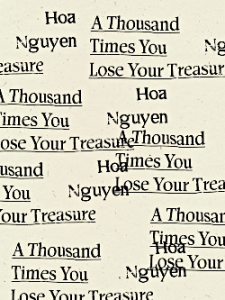 Hoa Nguyen is the author of several books of poetry, including A THOUSAND TIMES YOU LOSE YOUR TREASURES (Wave Books, 2021), As Long As Trees Last, RED JUICE (Wave Books, 2014), and VIOLET ENERGY INGOTS (Wave Books, 2016), which received a 2017 Griffin Prize nomination.
Hoa Nguyen is the author of several books of poetry, including A THOUSAND TIMES YOU LOSE YOUR TREASURES (Wave Books, 2021), As Long As Trees Last, RED JUICE (Wave Books, 2014), and VIOLET ENERGY INGOTS (Wave Books, 2016), which received a 2017 Griffin Prize nomination.
As a public proponent and advocate of contemporary poetry, she has served as guest editor for The Best Canadian Poetry in English 2018 and judge for the 2020 Griffin Prize for Poetry, and she has performed and lectured at numerous institutions, including Princeton University, Bard College, Poet’s House, and the Banff Centre’s Writers Studio.
Recipient of a 2019 Pushcart Prize and a 2020 Neustadt International Prize for Literature nomination, she has received grants and fellowships from the Canada Council for the Arts, the Ontario Arts Council, the MacDowell Colony, and the Millay Colony for the Arts.
Her writing has garnered attention from such outlets as The PBS News Hour, Granta, The Walrus, New York Times, and Poetry, among others. Born in the Mekong Delta and raised and educated in the United States, Nguyen has lived in Canada since 2011.
A Thousand Times You Lose Your Treasure
by Hoa Nguyen
Pub Date:4/6/2021
Publisher: Wave Books
Product Number:9781950268177
ISBN978-1-950268-17-7
SKU #: B14B
Binding: PAPERBACK
Pages: 144
Price: $ 18.00
• fleursdumal.nl magazine
More in: #Editors Choice Archiv, Archive M-N, Archive M-N
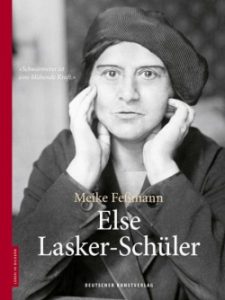
Heimweh
Ich kann die Sprache
Dieses kühlen Landes nicht,
Und seinen Schritt nicht gehn.
Auch die Wolken, die vorbeiziehn,
Weiß ich nicht zu deuten.
Die Nacht ist eine Stiefkönigin.
Immer muß ich an die Pharaonenwälder denken
Und küsse die Bilder meiner Sterne.
meine Lippen leuchten schon
Und sprechen Fernes,
Und bin ein buntes Bilderbuch
Auf deinem Schoß.
Aber dein Antlitz spinnt
Einen Schleier aus Weinen.
Meinen schillernden Vögeln
Sind die Korallen ausgestochen,
An den Hecken der Gärten
Versteinern sich ihre weichen Nester.
Wer salbt meine toten Paläste –
Sie trugen die Kronen meiner Väter,
Ihre Gebete versanken im heiligen Fluß.
Else Lasker-Schüler
(1869 – 1945)
Heimweh
• fleursdumal.nl magazine
More in: #Editors Choice Archiv, Archive K-L, Archive K-L, Lasker-Schüler, Else
Bob Dylan’s iconic 1962 song “A Hard Rain’s A-Gonna Fall” stands at the crossroads of musical and literary traditions.
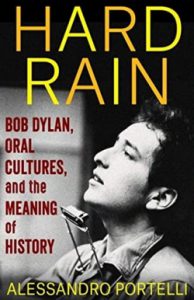 A visionary warning of impending apocalypse, it sets symbolist imagery within a structure that recalls a centuries-old form. Written at the height of the 1960s folk music revival amid the ferment of political activism, the song strongly resembles—and at the same time reimagines—a traditional European ballad sung from Scotland to Italy, known in the English-speaking world as “Lord Randal.”
A visionary warning of impending apocalypse, it sets symbolist imagery within a structure that recalls a centuries-old form. Written at the height of the 1960s folk music revival amid the ferment of political activism, the song strongly resembles—and at the same time reimagines—a traditional European ballad sung from Scotland to Italy, known in the English-speaking world as “Lord Randal.”
Alessandro Portelli explores the power and resonance of “A Hard Rain’s A-Gonna Fall,” considering the meanings of history and memory in folk cultures and in Dylan’s work. He examines how the ballad tradition to which “Lord Randal” belongs shaped Dylan’s song and how Dylan drew on oral culture to depict the fears and crises of his own era. Portelli recasts the song as an encounter between Dylan’s despairing vision, which questions the meaning and direction of history, and the message of resilience and hope for survival despite history’s nightmares found in oral traditions.
A wide-ranging work of oral history, Hard Rain weaves together interviews from places as varied as Italy, England, and India with Portelli’s autobiographical reflections and critical analysis, speaking to the enduring appeal of Dylan’s music. By exploring the motley traditions that shaped Dylan’s work, this book casts the distinctiveness and depth of his songwriting in a new light.
Alessandro Portelli is professor emeritus of American literature at the University of Rome and was for many years a faculty member of the Columbia Oral History Summer Institute. His books include The Text and the Voice: Writing, Speaking, Democracy, and American Literature (Columbia, 1994) and They Say in Harlan County: An Oral History (2011).
Alessandro Portelli:
Hard Rain.
Bob Dylan, Oral Cultures,
and the Meaning of History
Pub Date: May 2022
Columbia University Press
ISBN: 9780231205931
200 Pages
Format: Paperback
List Price: £20.00
• fleursdumal.nl magazine
More in: # Music Archive, - Book News, - Bookstores, Archive C-D, Archive C-D, Archive O-P, Art & Literature News, AUDIO, CINEMA, RADIO & TV, Bob Dylan, Dylan, Bob, Literary Events
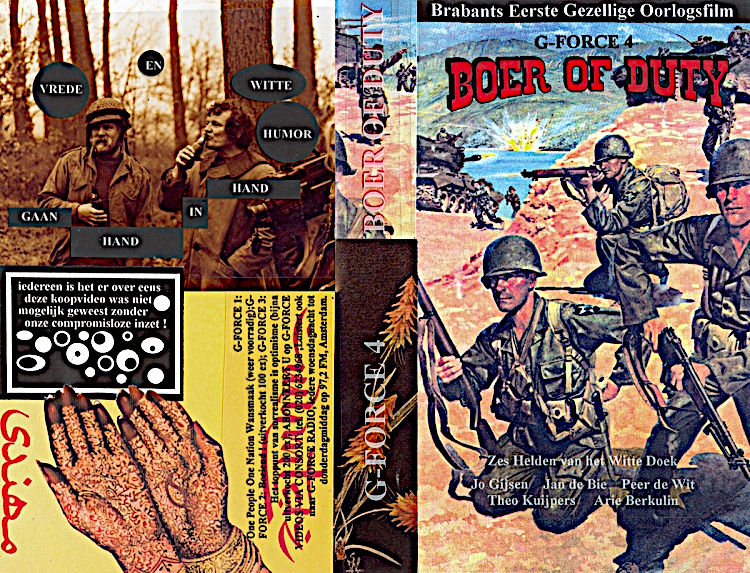
FILMAVOND BOER OF DUTY
film Dick Verdult
02.02 2023
In het kader van de tentoonstelling van Vincent Dams wordt op deze avond de film ‘Boer of Duty’ van Dick Verdult vertoond. Dams zegt:
‘Het toppunt van surrealisme is optimisme!
Twee zomers geleden hielp ik in de lockdown mee op een filmset van goede vriend en collega Dick Verdult. Dus toen de vraag vanuit PARK kwam om een filmavond te organiseren gingen mijn gedachten gelijk daar naartoe. Maar aangezien die film, ‘Als uw gat maar lacht’, 29 januari aanstaande pas in première gaat op het Rotterdams filmfestival was het zeer begrijpelijk niet echt mogelijk die enkele dagen later te tonen in PARK.
“Je kan misschien wel ‘Boer of Duty’ laten zien”, zei Dick, waarop ik na wat peinzen reageerde, “dat is eigenlijk best een goed idee”.
Op het ontwerp van de oude VHS hoes las ik de zin ‘Het toppunt van surrealisme is optimisme’ waarmee het mooi direct aansluiting vindt bij mijn tentoonstelling over optimisme in rare tijden bij PARK. En terwijl ik als negenjarig jongetje scènes uit Tour of Duty, de welbekende serie over de Vietnamoorlog na speelde in de bosjes en struiken van Veldhoven, deed in 1993 Dick dus hetzelfde, 10 km verderop in de bossen en landerijen van Nederwetten, alleen dan mét camera.
Deze ‘eerste gezellige Brabantse oorlogsfilm’, die we gerust een cultklassieker kunnen noemen, wiens cast bijna volledig uit oude gerenommeerde Brabantse kunstenaars bestaat zoals Jo Gijsen, Jan de Bie, Peer de Wit, Theo Kuijpers en Arie Berkulin, beleeft dus 30 jaar later eindelijk zijn Tilburgse première.’
Vincent Dams verricht op deze avond ook de introductie.
Credits van de film: Dick Verdult / Ibw / G-Force Videos.
Donderdag 2 februari 2023
Zaal open 19.30 uur
Aanvang 20.00 uur
De film duurt 60 minuten, na afloop is er gelegenheid voor een drankje
Toegang € 5,-
ParkTilburg
Wilhelminapark 53, 5041 ED Tilburg
park(at)park013.nl
Twitter.com/ParkTilburg
Facebook.com/Park013
https://www.instagram.com/park_tilburg/
PARK ligt op 10 minuten loopafstand van het Centraal Station Tilburg in de nabijheid van Museum De Pont. Er is beperkt parkeergelegenheid voor de deur.
Brabants eerste gezellige oorlogsfilm
• fleursdumal.nl magazine
More in: Art & Literature News, AUDIO, CINEMA, RADIO & TV, Exhibition Archive, Literary Events, Park, SURREALISM
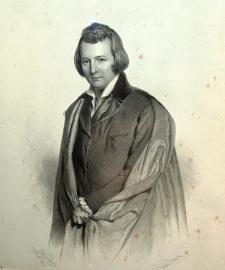
Auf Flügeln des Gesanges . . .
Auf Flügeln des Gesanges,
Herzliebchen, trag ich dich fort,
Fort nach den Fluren des Ganges,
Dort weiß ich den schönsten Ort.
Dort liegt ein rotblühender Garten
Im stillen Mondenschein;
Die Lotosblumen erwarten
Ihr trautes Schwesterlein.
Die Veilchen kichern und kosen,
Und schaun nach den Sternen empor;
Heimlich erzählen die Rosen
Sich duftende Märchen ins Ohr.
Es hüpfen herbei und lauschen
Die frommen, klugen Gazell’n;
Und in der Ferne rauschen
Des heiligen Stromes Well’n.
Dort wollen wir niedersinken
Unter dem Palmenbaum,
Und Liebe und Ruhe trinken
Und träumen seligen Traum.
Heinrich Heine
(1797-1856)
Auf Flügeln des Gesanges . . .
• fleursdumal.nl magazine
More in: Archive G-H, Archive G-H, Heine, Heinrich
This book of poetry is a song for the plight and pride of immigrants around the globe, including the U.S., China, Syria, Honduras, Guatemala, Nepal, Tibet and other places.
 Whether they pull up their roots to flee war, the rising sea or drought, for religious freedom and freedom of speech, or simply to seek a better life, immigrants are the frontiers of civilization.
Whether they pull up their roots to flee war, the rising sea or drought, for religious freedom and freedom of speech, or simply to seek a better life, immigrants are the frontiers of civilization.
They are a force of nature, like salmon, monarchs, trees, water, and mountains, moving with rivers, the earth and universe.
Migration is the signature of life – no immigrants, no economy; no immigration, no civilization; no migration, no life.
We are all immigrants.
Wang Ping is Poet, professor, photographer, installation artist, author of 14 books and dancer.
My Name is Immigrant
by Wang Ping (Author)
Publisher: Hanging Loose Press (May 4, 2020)
Language: English
128 pages
ISBN-10: 1934909661
ISBN-13: 978-1934909669
2020
Paperback
$17.46
• fleursdumal.nl magazine
More in: #Editors Choice Archiv, - Book News, - Bookstores, Archive O-P, Archive O-P

Poëzieweek 2023 start zoals altijd op Gedichtendag, donderdag 26 januari 2023, en loopt t.e.m. woensdag 1 februari 2023.
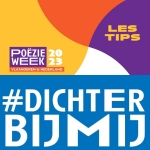 Sinds 2000 wordt elk jaar eind januari poëzie extra in de kijker gezet. Op initiatief van Poetry International werd de laatste donderdag van januari uitgeroepen tot Gedichtendag. Een breed samenwerkingsverband van dichters, literaire organisaties, scholen, bibliotheken en andere verenigingen zorgde ervoor dat de donkere januaridagen in Vlaanderen en Nederland een poëtische invulling kregen.
Sinds 2000 wordt elk jaar eind januari poëzie extra in de kijker gezet. Op initiatief van Poetry International werd de laatste donderdag van januari uitgeroepen tot Gedichtendag. Een breed samenwerkingsverband van dichters, literaire organisaties, scholen, bibliotheken en andere verenigingen zorgde ervoor dat de donkere januaridagen in Vlaanderen en Nederland een poëtische invulling kregen.
De campagne van de eerste Gedichtendag in 2000 werd afgetrapt met de verkiezing van het mooiste gedicht. Na een breedgedragen stemcampagne haalde ‘Denkend aan Holland’ van Hendrik Marsman het van onder meer ‘De moeder de vrouw’ van Martinus Nijhoff.
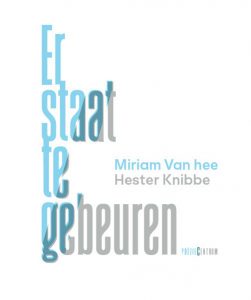 Bij elke editie werd aan een dichter gevraagd om 10 gedichten te schrijven die aansloten bij het thema van Gedichtendag. De eerste Gedichtendagbundel werd geschreven door Toon Tellegen. Later volgden onder meer nog Hugo Claus, Tom Lanoye, Remco Campert, Judith Herzberg, Antjie Krog, …
Bij elke editie werd aan een dichter gevraagd om 10 gedichten te schrijven die aansloten bij het thema van Gedichtendag. De eerste Gedichtendagbundel werd geschreven door Toon Tellegen. Later volgden onder meer nog Hugo Claus, Tom Lanoye, Remco Campert, Judith Herzberg, Antjie Krog, …
Door het grote succes van de Gedichtendag werd in 2013 beslist om Gedichtendag uit te werken tot een volledige Poëzieweek. Hierbij aansluitend werd de Gedichtendagbundel omgedoopt tot het Poëziegeschenk.
Met een bundeling van grote en kleine poëzie-activiteiten willen de organisatoren een groter bereik creëren voor poëzie.
Gedichtendag 2023: donderdag 26 januari 2023, 00:00–23:59
In 2023 schrijven Hester Knibbe en Miriam Van hee het Poëziegeschenk met als titel: Er staat te gebeuren.
 De Poëzieweek 2023 is een samenwerking van Poëziecentrum met Stichting Poëzieclub/Awater, Iedereen Leest, Stichting Lezen, Poetry International, De Schrijverscentrale, Literatuur Vlaanderen, Nederlands Letterenfonds, CPNB, NOORDWOORD, Koninklijke Bibliotheek Nederland, Perdu, CANON Cultuurcel, School der Poëzie, Probiblio, Dichter des Vaderlands België, Dichter des Vaderlands Nederland, de Taalunie, Antwerpen Boekenstad, Boekhandels Vlaanderen, Stichting Literaire Activiteiten Nijmegen, Prijs de Poëzie, Creatief Schrijven, Poetry Circle Nowhere en Passa Porta.
De Poëzieweek 2023 is een samenwerking van Poëziecentrum met Stichting Poëzieclub/Awater, Iedereen Leest, Stichting Lezen, Poetry International, De Schrijverscentrale, Literatuur Vlaanderen, Nederlands Letterenfonds, CPNB, NOORDWOORD, Koninklijke Bibliotheek Nederland, Perdu, CANON Cultuurcel, School der Poëzie, Probiblio, Dichter des Vaderlands België, Dichter des Vaderlands Nederland, de Taalunie, Antwerpen Boekenstad, Boekhandels Vlaanderen, Stichting Literaire Activiteiten Nijmegen, Prijs de Poëzie, Creatief Schrijven, Poetry Circle Nowhere en Passa Porta.
Thema 2023: ‘Vriendschap’
Vriendschap: vrienden steunen, lachen, luisteren, beleven, inspireren. Vrienden zijn een essentieel deel van wie we zijn en worden. Ook poëzie kan je vriend zijn. Gedichten helpen ons om vreugde en verdriet te delen, om die gevoelens een plaats te geven waarvoor je zelf geen woorden hebt.
 De Poëzieweek 2023 is een samenwerking van Poëziecentrum met Stichting Poëzieclub/Awater, Iedereen Leest, Stichting Lezen, Poetry International, De Schrijverscentrale, Literatuur Vlaanderen, Nederlands Letterenfonds, CPNB, NOORDWOORD, Koninklijke Bibliotheek Nederland, Perdu, CANON Cultuurcel, School der Poëzie, Probiblio, Dichter des Vaderlands België, Dichter des Vaderlands Nederland, de Taalunie, Antwerpen Boekenstad, Boekhandels Vlaanderen, Stichting Literaire Activiteiten Nijmegen, Prijs de Poëzie, Creatief Schrijven, Poetry Circle Nowhere en Passa Porta.
De Poëzieweek 2023 is een samenwerking van Poëziecentrum met Stichting Poëzieclub/Awater, Iedereen Leest, Stichting Lezen, Poetry International, De Schrijverscentrale, Literatuur Vlaanderen, Nederlands Letterenfonds, CPNB, NOORDWOORD, Koninklijke Bibliotheek Nederland, Perdu, CANON Cultuurcel, School der Poëzie, Probiblio, Dichter des Vaderlands België, Dichter des Vaderlands Nederland, de Taalunie, Antwerpen Boekenstad, Boekhandels Vlaanderen, Stichting Literaire Activiteiten Nijmegen, Prijs de Poëzie, Creatief Schrijven, Poetry Circle Nowhere en Passa Porta.
Poëzieweek 2023: 26 januari t/m 1 februari
Gedichtendag 2023: donderdag 26 januari
Meer informatie: https://www.poezieweek.com/
• fleursdumal.nl magazine
More in: - Book Lovers, - Book News, - Bookstores, Art & Literature News, AUDIO, CINEMA, RADIO & TV, Feest der Poëzie, Literary Events, Poetry International, Poëziepaleis, Poëzieweek
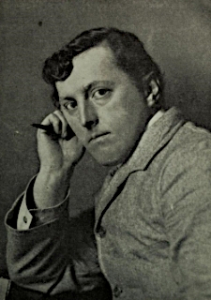
A Dream
My dead love came to me, and said,
‘God gives me one hour’s rest,
To spend with thee on earth again:
How shall we spend it best?’
‘Why, as of old,’ I said; and so
We quarrell’d, as of old:
But, when I turn’d to make my peace,
That one short hour was told.
Stephen Phillips
(1864 – 1915)
A Dream
• fleursdumal.nl magazine
More in: #Editors Choice Archiv, Archive O-P, Archive O-P
Thank you for reading Fleurs du Mal - magazine for art & literature